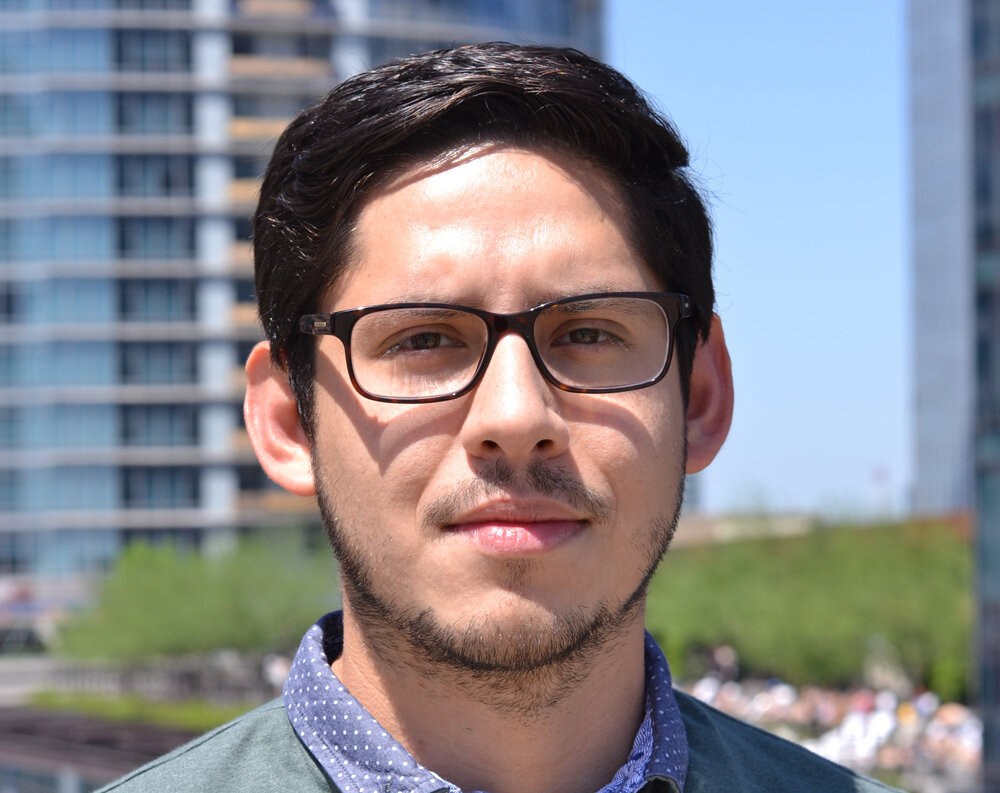Esteban Rodriguez
Esteban Rodriguez, Poems
Esteban Rodríguez was raised in the Rio Grande Valley along the Texas/Mexican border. After graduating from the University of Texas at Austin, he worked as a barista and a writing tutor before becoming a high school teacher. A graduate of the University of Texas Rio Grande Valley’s MFA program, his writing seeks to explore they ways in which cultural traditions and expectations shape our understanding of identity, family relationships, and our everyday interactions with the world at large. Rodríguez is the author of Dusk & Dust (Hub City Press, 2019), Crash Course (Saddle Road Press, 2019), In Bloom (SFASU Press, 2020), (Dis)placement (Skull + Wind Press, 2020), and The Valley (Sundress Publications, 2021). He has work forthcoming in Thrush Poetry Journal and Malasaña, and previous work has appeared in Boulevard, Shenandoah, The Rumpus, and TriQuarterly. Currently, he is the Interviews Editor at the EcoTheo Review, an Assistant Poetry at AGNI, and a regular reviews contributor at Heavy Feather Review. When he is not reading or watching British crime dramas with his wife, he is out with his dogs on a trail somewhere in Austin. You can find him on Twitter at @estebanjrod11. His books are available at bookshop.org.
1 El gallo
And when you got to high school,
you stopped giving them names,
no longer saw the chickens as Luz,
Maribel, Elena, Guadalupe, didn’t try
to justify their open mouths for smiles,
their clucks for joy, their wing flapping
for how excited they were to see you again.
No, in fact you regretted that you ever
loved them in the first place, that at night
you would sneak one in, tuck her next to you
in bed, and in the morning, when no one
was looking, fed her pieces of your breakfast
from your hand, like she was a pet,
though you knew that she was anything but,
that sometimes, for reasons you didn’t yet
understand, your father would go out
into the yard, and like a man surveying
what he knows can no longer live,
would grab one of your beloved chickens,
wring her neck, and with her limp body
in his hands, take her to a place beyond
the yard, where you prayed he’d pick
a spot you could easily find, walk to
when you felt alone, and reminisce.
2 El diablito
When you imagine your father
in the desert, you also imagine the devil,
not the horned, goat-legged,
or personified snake version,
but the one that manifests as a small
shadowy figure, a trickster that follows
your father, places, when he’s not looking,
rocks he stumbles over, or kilometers
of cactuses he must trudge through,
only to find, when he reaches the end,
mirages that make him believe
he is seeing cities, oil refineries,
floating islands that he can climb up
and rest on, forget how the devil pinches
his skin, or squeezes his throat,
or carves a fever across the back
of his neck, and how at night,
when your father thinks the stars
will ease the desert’s uncertainty,
bangs on a drum just off in the distance,
as if to remind him that no matter
what corner of the earth he finds himself in,
his fate offers no moment of rest.
22 La bota
At home, there was nothing your father
couldn’t turn his work boots into—
a hammer for loose nails, a prop to even
stubborn tables and chairs, a weapon
to end the lives of anonymous insects.
And there were nights when he would sleepwalk,
and out in the yard with nothing but underwear
on, he’d smack together the bottoms of his boots,
as if there were spirits he had to ward off,
as if his past had taken on some once human form,
and to remind him that no one is ever free
of sin, made it its duty to stalk him at home.
And though it lasted no more than a few minutes,
and your mother would wake him up,
bring him back in, you figured that the boots
had done their job, that the reason he never used
sticks, pots or pans, or yelled at the top
of his lungs was because he wanted the spirit
to know exactly who he was,
that he had every right to be at peace
on whatever ground he walked.

